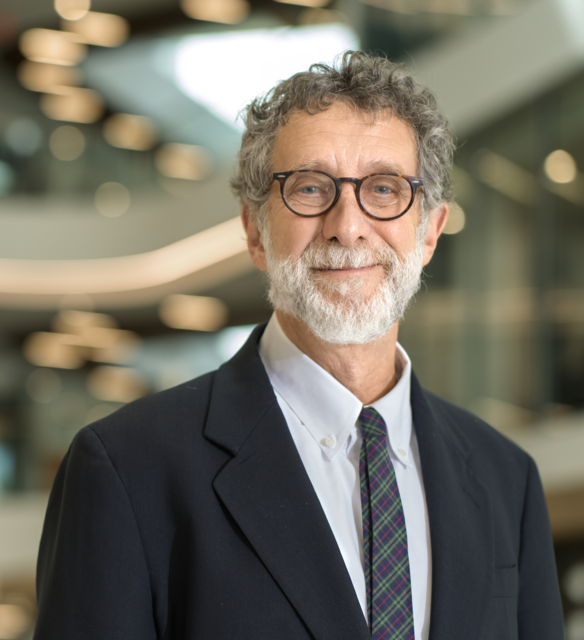Eric Sorscher, M.D.
Pediatric Research
Emory University
Children's Healthcare of Atlanta
Recruited: 2015
Dr. Eric Sorscher has dedicated his career towards advancing knowledge about cystic fibrosis (CF) and genetic mutations that cause the disease. Findings from his laboratory helped shape treatments available today; they’ve also opened the door to a new therapeutic strategy for CF and, potentially, a host of other respiratory illnesses.
Cystic fibrosis is a hereditary disorder caused by malfunctions in a protein called CFTR (cystic fibrosis transmembrane conductance regulator). CFTR is a chain of approximately 1,500 amino acids that collectively provide a channel or pathway across the cell membrane. This channel transports ions from inside to outside the cells of major organs – a kind of “salt movement” that draws moisture and brings other effects. Mucus is washed away, and impurities like bacteria are expelled.
This process malfunctions in multiple organs – including the lungs – among people with cystic fibrosis. That’s because the CFTR channel is improperly constructed; thus, ions and moisture can’t travel across the cell membrane. The breakdown means that bacteria-laden mucus continues to build up in the airways, eventually clogging a patient's lungs and nasal passages. This leads to symptoms such as chronic cough, trouble breathing, frequent airway infections — and in severe cases, death from respiratory failure. A similar process involving mucus accumulation occurs in digestive and other tissues.
Early in his career, Sorscher recognized the potential of gene therapy as a promising avenue to treat the root cause of CF. He produced some of the first data showing that the CFTR gene helped form the protein channel. He also uncovered new knowledge as to how mutations in the gene disrupt function of the channel. And in the early 2000s, he conducted one of the nation’s first studies on gene therapy for CF, which involved replacing the mutant CFTR gene. The study yielded a far more comprehensive view of the obstacles and complexities of a gene therapy approach for the disease, helping to inform future research.
On the drug development front, one of Sorscher’s major contributions was to lead an international group of investigators that helped companies speed establishment of new treatments for cystic fibrosis. The group, called the CFTR Folding Consortium, shared insights regarding the genetic defects responsible for the disease as well as ways to overcome these abnormalities. “We served as consultants to a lot of companies trying to develop new drugs to treat CF on behalf of the CF Foundation,” he recalls.
Sorscher has also used high-throughput screening to find compounds with the potential to activate CFTR protein and restore the channel that clears mucus and bacteria. In 2022, after testing more than 300,000 such compounds, he found one with great promise – not only for testing in cystic fibrosis, but also for other respiratory diseases. As of 2024, Sorscher and colleagues were developing a first test of the drug as a treatment for CF, chronic bronchiectasis and sinusitis, conditions affecting millions worldwide.
Along with his work in cystic fibrosis, Sorscher is a key contributor to research in gene-therapy technology for combating cancer. While at the University of Alabama at Birmingham, Sorscher helped advance a novel therapeutic for solid tumors. The experimental treatment uses a patented enzyme, E. coli purine nucleoside phosphorylase, to produce targeted, potent chemotherapy within the tumor cells themselves. The technology has been licensed by a biopharmaceutical company (PNP Therapeutics®, Inc.). Sorscher is a founding scientist of the company and serves on its board.
Beyond research, Sorscher is dedicated to educating the next generation of scientists and medical professionals. He has actively mentored students, as well as faculty researchers at Emory, inspiring them to pursue careers in biomedical research and make a positive impact on the world.
Research
Publications from Eric Sorscher >
Choosing Georgia
"The environment at Emory is outstanding, and my scientific colleagues are spectacular. GRA was one of the major reasons for moving my research to Georgia. They’re interested in entrepreneurship, and they provide careful, thoughtful guidance for projects that might help individuals with life-threatening diseases. And GRA has a mechanism that makes it possible for accomplished investigators to take their science and move it forward in meaningful ways."

